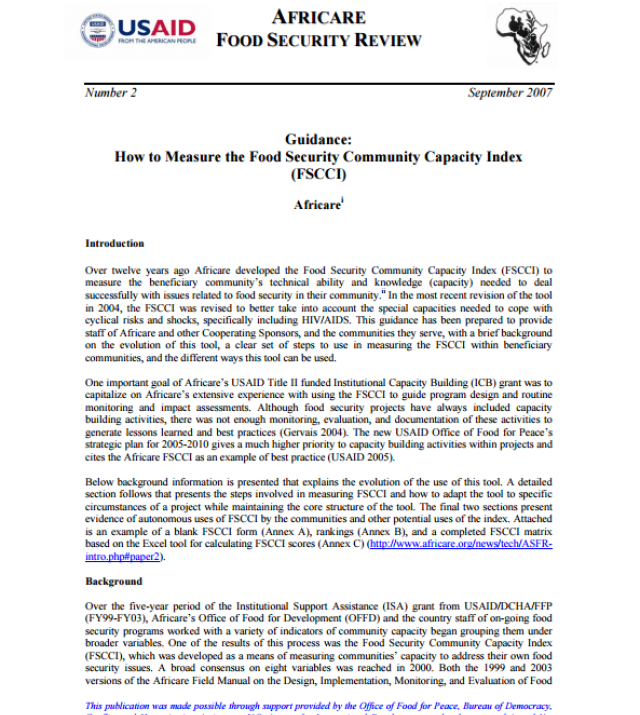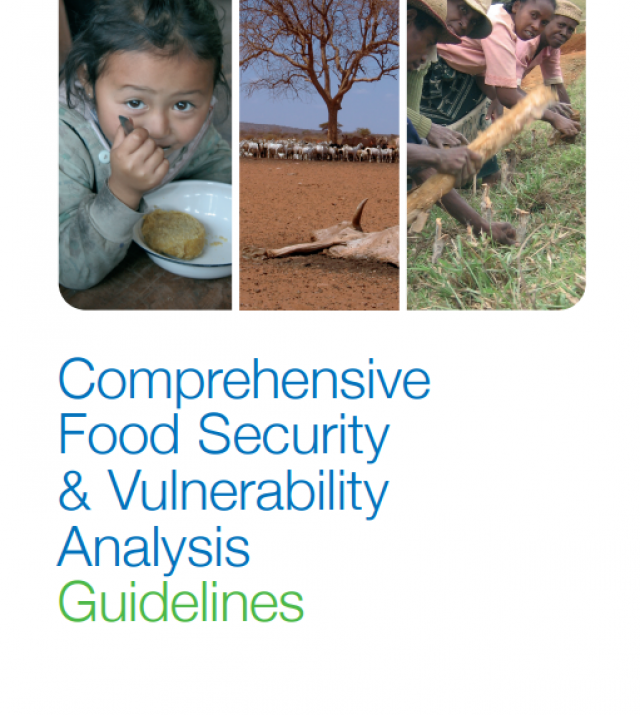
Guidance: How to Measure the Number of Months of Adequate Household Food Provisioning (MAHFP) Based on Participatory Rural Appraisals

Over twelve years ago Africare developed the Food Security Community Capacity Index (FSCCI) to measure the beneficiary community’s technical ability and knowledge (capacity) needed to deal successfully with issues related to food security in their community. In the most recent revision of the tool in 2004, the FSCCI was revised to better take into account the special capacities needed to cope with cyclical risks and shocks, specifically including HIV/AIDS. This guidance has been prepared to provide staff of Africare and other Cooperating Sponsors, and the communities they serve, with a brief background on the evolution of this tool, a clear set of steps to use in measuring the FSCCI within beneficiary communities, and the different ways this tool can be used.
Over the five-year period of the Institutional Support Assistance (ISA) grant from USAID/DCHA/FFP (FY99-FY03), Africare’s Office of Food for Development (OFFD) and the country staff of on-going food security programs worked with a variety of indicators of community capacity began grouping them under broader variables. One of the results of this process was the Food Security Community Capacity Index (FSCCI), which was developed as a means of measuring communities’ capacity to address their own food security issues. A broad consensus on eight variables was reached in 2000. Both the 1999 and 2003 versions of the Africare Field Manual on the Design, Implementation, Monitoring, and Evaluation of Food Security Activities include detailed sections that outline how to use the FSCCI. During FY04 and as stated in Africare’s technical proposal for the Institutional Capacity Building grant from USAID/DCHA/FFP (FY04–FY08), two additional variables were developed at field workshops held in Mozambique and Burkina Faso in April and July, respectively, to address risks and shocks, such as HIV/AIDS. During the 2007 Africare food security workshops, the FSCCI was further revised based on experience in implementing it in the field and those recommendations have been included in this guidance.
The variables are:
- Community Organization
- Community Participation
- Transparency and Good Management
- Good Internal Functioning of the Organization
- Capacity to Analyze and Plan
- Capacity to Take Action
- Community Capacity to Analyze and Manage Risks and Shocks
- Community Capacity to Manage Risks Associated with HIV/AIDS
- Communication and Exchanges with Outsiders
- Communication and Exchanges with Outsiders

